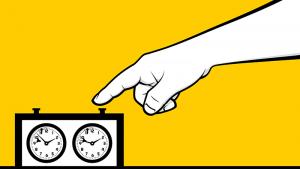
Mastering Your Tactical Intuition
Half the variations which are calculated in a tournament game turn out to be completely superfluous. Unfortunately, no one knows in advance which half. -- GM Jan Timman, The Art of Chess Analysis (1997)
As we saw in part one, chess does not always lend itself to rational, sequential thought. Frequently, the position is so indecipherable that we have no choice but to rely on our intuition. Today, I would like to examine the tactical component of this crucial skill.
Tactical intuition can be further dissected into three elements:
- The ability to sense a combination or knockout blow.
- The ability to play accurately even when calculation is impossible or impractical.
- The ability to judge whether a tactical sacrifice will bring enough long-term compensation.
Modern computers are so infallible precisely because their processing power renders intuition unnecessary. Humans cannot calculate millions of variations per second, and therefore must embrace their imperfections. To this end, let us tackle the aforementioned list:
1. Sensing the combination or knockout blow.
In an earlier article, I mentioned that players often fail to convert a decisive advantage because they are unable to deliver the knockout punch. Regardless of the position, you must always carefully note its tactical characteristics. Even the slightest defect in your opponent's position may enable a tactical blow!
Even before my opponent played 37...Rc6, I sensed that a tactical operation on the back rank was in the air. Thus, I found 40.e6 only because my tactical intuition convinced me that such a blow was possible.
2. Playing accurately even when calculation is impossible or impractical.

The man with insight enough to admit his limitations comes nearest to perfection. -- Johann Wolfgang von Goethe (1749-1832)
One cannot become a legendary tactician solely by training his or her calculation. As Mark Dvoretsky points out in his Analytical Manual, "human capacity is not unlimited; decisions must be made in the context of limited thinking time. Therefore, we constantly rely upon intuitive guesses and feelings."
By calculating what we can and letting our intuition fill the gaps, we greatly maximize our chances of success in a complex tactical situation. The following Larsen masterpiece furnishes an excellent illustration.
An incredible finish, and Larsen's commentary makes it all the more entertaining. Moves like 28.c4 and 29.Nf4 are true hallmarks of chess genius!
3. Judging whether a sacrifice brings sufficient tactical compensation.

Not all sacrifices are created equal. Some, like Bobby Fischer's ultra-famous "game of the century" queen sac against Byrne, are fairly straightforward and easy to assess. Others, however, are virtually impossible to evaluate through calculation alone. As usual, intuition comes to the rescue!
Check out FM Alisa Melekhina's video on Tal's best queen sacs below. Watch the full video here.
Worry not, dear reader: our exploration of this fascinating concept is not over yet. The saga continues next week!






